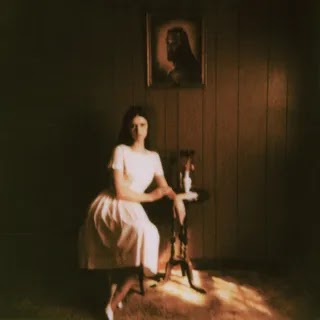On her debut album, the 24-year-old Tallahassee native briefly makes good on her instinct for mass-appeal pop anthems, but most of the 76-minute album dwells on roiling gloom and smoldering Americana.
Ethel Cain’s relationship with pop is nearly as complicated as her relationship with God. Inspired by her restrictive upbringing in a rural Southern Baptist community, the songwriter Hayden Anhedönia, born in Tallahassee and based in now Alabama, introduced her stage persona on her breakout EP, 2021’s Inbred. In its songs, she presented herself as a kind of American gothic Lana Del Rey, with a flair for lurid prose about hateful sex and violent impulses. Split between dreamy, contemporary pop and brutalist, witchy dirges, the EP left uncertain whether Cain, then 23, was setting out for cult stardom or actual stardom. At times, like the opening single “Michelle Pfeiffer,” she seemed to be campaigning for total TikTok saturation; at others she sounded as if she might retreat permanently back into the woods.
Like Inbred, Preacher’s Daughter, Cain’s full-length debut, places its catchiest pop salvo up front. With its heartland-rock pomp and beaming guitars, “American Teenager” plays like something off Taylor Swift’s Speak Now, a taste of the kind of mass-appeal anthems Cain could make if she opted to commit to that route. The rest of the record, though, makes clear she has no interest in that. For the bulk of the album’s heady 76 minutes, she turns her back on pop in favor of roiling gloom and smoldering Americana. If “American Teenager” didn’t so efficiently introduce the album’s motifs—disenfranchised youth, hard living, and misplaced ideals—it’d be a complete fakeout.
Preacher’s Daughter softens some of Ethel Cain’s more subversive edges, humanizing a character that Anhedönia first envisioned as a cult leader. Here she’s more of a tragic heroine in a doomed romance. The torchy “Western Nights” vaguely outlines a narrative involving a woman and her Harley-riding boyfriend crossing state lines, on the run from their past and still bearing family traumas. Cain originally conceived the album as a screenplay; it’s likely the finished film would have had echoes of David Lynch’s Wild at Heart. It all might sound a little fresher if Lana Del Rey hadn’t already mined these character archetypes exhaustively.
The record is paced like dripping candle wax, with most of its songs spilling over pop’s tidy running times. That leaves plenty of time to luxuriate in Cain’s remarkable voice. On the rootiest songs, “Hard Times” and “Thoroughfare,” her voice rings with the sterling clarity of Natalie Merchant. Just as often, though, it’s caked in soot or seething with disdain. On the industrial-shocked “Ptolemaea,” the record’s lone descent into nightmarish terror, she breaks open the song with an agonizing shriek any horror director would envy. Cain’s songs often threaten to erupt, but “Ptolemaea” is one of the few that truly does.
Preacher’s Daughter would benefit from a few more raw thrills; too often the haunted, churchy ambiance falls into a predictable stasis. There’s a disconnect between Cain’s provocative public image and the rigid composure of these songs, which rarely shock the way Inbred’s did. The album’s length works against it, too. Cain winnowed the record down from what she once planned to be a two-plus-hour epic, and at times she sounds like she’s writing to run out the clock. The album buckles under the weight of its many seven-minute songs, each of which dulls the impact of the next. As captivating as Cain’s mood-setting can be, Preacher’s Daughter is such a slow burn you periodically wonder if the flame is even still lit.
CORRECTION: An earlier version of this review calculated the album’s running time as 90 minutes, not 76.



0 comments:
Post a Comment